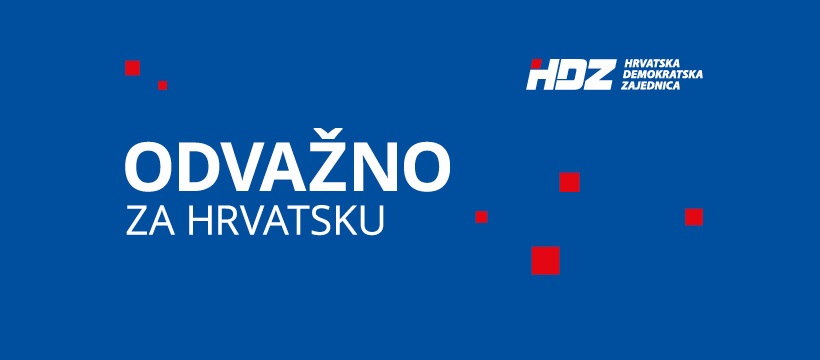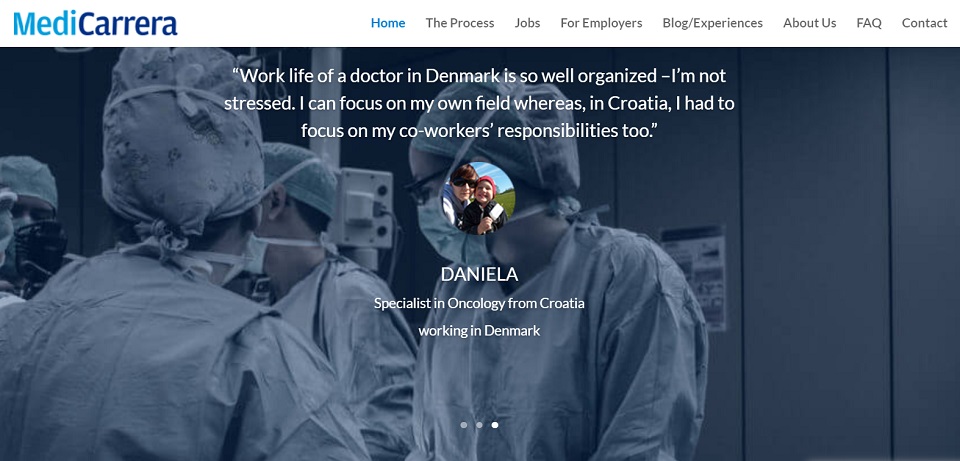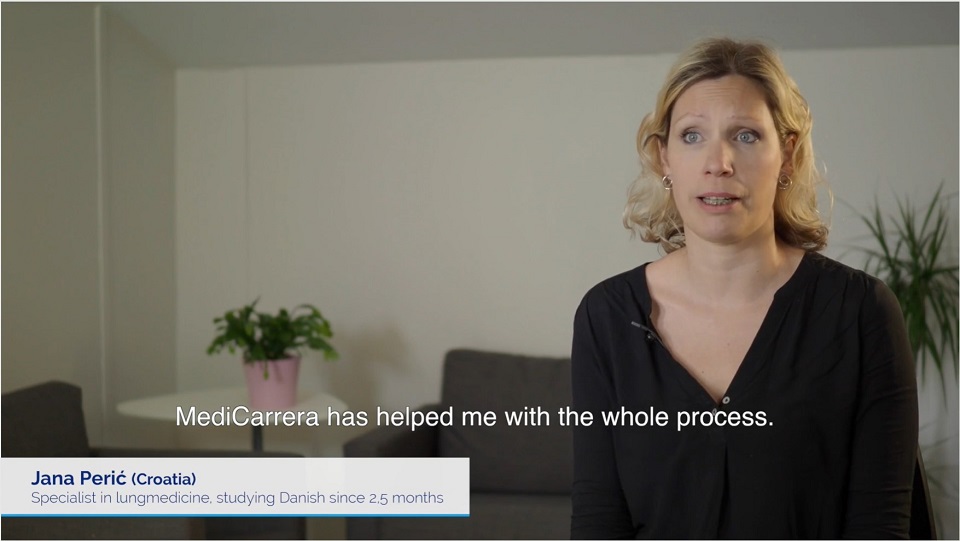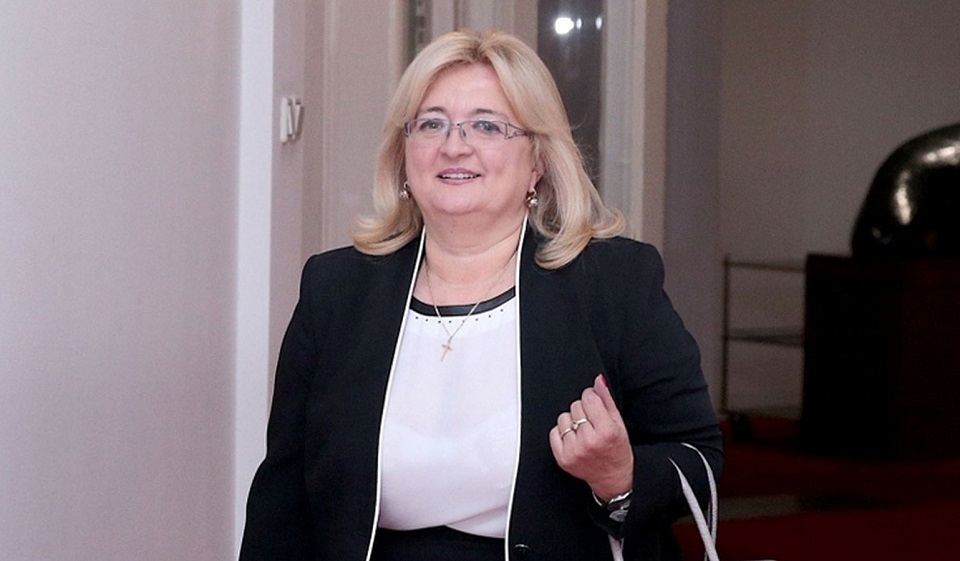Slavonia Returnees from Ireland all Agree on Several Things
April 28, 2023 - In the last decade, young people mostly traveled in one direction from Slavonian railway stations and airport terminals. After a wave of emigration to Ireland and Germany and a period spent working abroad, more and more people are returning to the east of Croatia. How do Slavonia returnees feel?
The HRT team, writes Poslovni, spoke to them about what the Croatian labor market can learn from Western Europe, what Croatia's advantages are, and how to navigate in a new country and culture.
"The number of returnees is relatively small. These are mainly people who are overqualified for the jobs they do abroad. Nevertheless, there are success stories, where people learn something, earn some money and bring it all back here," said associate professor, Ph.D., Željko Pavić, Department of Sociology, University of Osijek.
One of such is Branko's story. He went to Ireland 20 years ago and returned ten years ago - around the time of the first big wave of emigration. Now a businessman, he worked in restaurants and became a chef. He is opening his own restaurant soon.
"I learned languages, I learned a lot of other recipes, and I think now is the time to apply a little bit of that in our area here," said Branko Grozdanić from Osijek.
All returnees agree on one thing: when it comes to work culture, Croatia cannot compete with the West.
"Attitude towards the worker, progressing at work, which I think is the most important aspect. You can start as a kitchen porter today and become a manager in 2 years. It's just that they appreciate the work", emphasizes Igor Vukadinović from Osijek.
Zen went to Ireland primarily because of love. But after half a year, he realized neither the girl nor the country was the one. He had difficulty coming to terms with cultural differences and bad weather.
"The start there is quite difficult, primarily because of real estate; rents are expensive. Your first job probably won't bring you a fabulous salary," said Zen Špehar from Osijek.
Research shows that most Croatian emigrants do not plan to return to their homeland, though. Those who do not rule it out will only do it if a number of conditions are met.
"Everyone has to weigh out what is more important in life," says Igor.
"We live in the perfect position. In terms of weather, food, quality of life, everything", emphasizes Igor.
Those who strive for stability, a slower and more relaxed lifestyle that largely does not involve money, think more about returning. Unfortunately, this will only somewhat mitigate the significant damage done to Croatia by the loss of its youth.
For more, make sure to check out our dedicated Lifestyle section.
Survey Shows Close to 50% of Young People Thinking About Leaving Croatia
ZAGREB, 9 Feb 2022 - Close to 50% of young Croatians occasionally or frequently think about leaving the country, and their stay depends on a number of factors, which is why it is necessary to focus on the value and cultural aspects of the problem, shows a survey on the motivation of young people to emigrate and start a family.
"When it comes to the likelihood of emigration, on a scale from 1 to 10, the average response was slightly above 4, which means that young people are divided over whether they want to emigrate, but almost half of them think about leaving occasionally or frequently," World Youth Alliance Croatia (WYAC) member Domagoj Dalbello said.
This shows that a significant number of young people are considering leaving the country. However, they do not leave on impulse, but rather consider the option for some time before leaving.
"Young people want 2.4 children on average, which is higher than the average number of children in Croatia. The reason why young people do not have more children is not exclusively because they do not want children, but that there are other discouraging circumstances", Dalbello said.
Socially more active want more children, less inclined to emigrate
58% of young people vote in parliamentary elections, 65% vote in presidential elections and 60% in local elections while 7-9% never vote, depending on the type of elections. At the same time, close to 90% of young people believe participation in elections should be higher, which means that they are aware of the importance of political participation.
The survey also shows that young people who vote more are less inclined to emigrate, making political apathy and lack of belief that one can change anything, one of the emigration factors.
15% of young people are active in civil society, while 7% are active in a political party.
Youths who are more active in civil society want to have several children on average, but want to do so later in life. They also have less of a desire to emigrate.
Those active in a religious community want to have several children while younger and have a lower desire to emigrate. This means that while membership of a political party may be related with lower intentions to emigrate, it is not related to the desired number of children.
The average likelihood of emigration of young people in the public sector is 3.1 and in the private sector 4, which poses a problem in terms of economy.
Slightly more than half of young people live with their parents and those who have moved out did so mostly at the age of 18 or 19, which coincides with the age when they go to college. The survey found that the later young people leave their parents' home, the later they start their own family.
The survey also shows that young people whose relatives live abroad are more likely to emigrate. Those who want to stay mention the country's beauty and the wish to live in their homeland, while those who are more likely to emigrate cite corruption and tourism.
Expert: Public policies focus on elderly
Marin Strmota, a lecturer at the Zagreb Faculty of Economics and former secretary for demography who unexpectedly resigned from that post at a news conference in 2018, warned that the share of young people in the total population was decreasing, hence their voices were less represented.
"If the share of older citizens is growing, public policies will naturally focus on the older population because it carries more votes," he said.
He noted that one should have clearer and more specific methods of attracting young people and that surveys should also be conducted locally because not all local government units have the same potential, problems and legacy.
Asked what he considered to be a bigger problem - the emigration of young people or the unwillingness to have children of those staying in the country, Strmota said that all negative processes were present - total and natural depopulation, generational depopulation and emigration depopulation.
An advisor at the Institute for Migration and Ethnic Studies, Sanja Klempić Bogadi, said that the state focuses too much on how to stimulate the return of those who have left instead of focusing on how to keep young people who are still in the country.
The WYAC survey covered 660 young people aged 18-30 with residence in Croatia and was conducted from 23 September to 1 December 2021 via social networks and e-mail.
For more, check out our lifestyle section.
As Many as 50 000 Expats Could Return to Croatia
ZAGREB, April 6, 2020 - Croatian expats who lost their jobs in EU members states have started returning to Croatia following the outbreak of the coronavirus, aware that medical expenses, in case they get infected, will be much higher there than in Croatia, the Večernji List daily wrote on Monday.
In case the crisis lasts, the number of expats returning to Croatia will rise because as foreigners in other EU countries they will be among the first to get laid off, the daily said.
According to demographer Stjepan Šterc, those who left Croatia over the past several years will return to Croatia because they will lose their jobs in the crisis and will be unable to pay expensive rents and apartment leases in the EU.
It is difficult to estimate how many of them will return, but under the assumption that approximately 350,000 Croats have emigrated and that many of them will lose their jobs during the crisis, it can be estimated that up to 50,000 of them could potentially return to Croatia, Šterc said.
This does not mean that all of them would return immediately, but this and over the next several years. The number of the returnees will depend on Croatia's reaction to the economic crisis, the daily said.
More diaspora news can be found in the dedicated section.
Croatia Emigrants Dismiss Incentive: Money Not Enough, Change Mindset
March 10, 2020 - There isn’t any amount money that would lure us back to Croatia, according to emigrants who responded to Prime Minister Plenković's recent financial incentive proposal to encourage their return. Croatian politicians and PM Andrej Plenković are clearly not listening to what emigrants are saying. Money is not the only reason they left, and it’s not even the main reason.

Uhljeb | Facebook
Croatia Mindset Must Change by 300 Percent
The mindset would have to change by 300 percent me to return to Croatia, explained a Zagreb man to Anamarija Burazer/24 Sata on March 10, 2020. He moved with his family to Cork, Ireland a few years ago. Upon being asked why they had moved out, he responded:
“I left because of the bunch of uhljebi (incompetent public sector employees) who are fed by the private sector so they can play solitaire. Then they release pedophiles and murderers while punishing grandmothers for cooking brandy. Politicians are working only for themselves and their own seats and citizens in Croatia feel like second-class citizens…"
In 2018, 24 Sata published the stories of several emigrants, all of whom who have sought happiness throughout the globe. However, they all agree about one thing: they have escaped injustice.
Considering that Prime Minister Andrej Plenkovic just announced financial incentive measures to encourage Croatians to return home; 24 Sata checked in with several interviewees for the two-year-old series regarding the Prime Minister’s proposed incentives.

Domagoj Starcević | Facebook
Employees Have More Rights in Germany
“I have no plans to return to Croatia, and it’s unfortunate that I have more rights as an employee in Germany than I do as an employee in my own country,” Domagoj Starcević (29) reveals. He has lived in Munich for five years and is working as a chef. He still recommends that Croatians who are considering moving away do so.
“For me to return, they would have to offer me a job with two days off per week, a higher salary which is fully reported, and a guaranteed paycheck on the same day of every month,” he added.
Emigrants Find Work, Friends, Purpose Abroad
Since 2016, chemistry engineer Matea Večeric (27) has been living in faraway Japan.
“I would not go back, because once you find your place under the sun and a purpose, a life goal and create a circle of people around you that make you happy, there is nothing anyone can offer to lure me back. If I had had that from the beginning in Croatia, I might not have left,” Matea pointed out. The only thing that could bring her home is her family.
"For now, I continue on my path here in Japan,” she said and reports that she earns three times more in Japan than she did in her home country.
“There are many more opportunities to move forward and live stress-free,” Matea concluded.
Working to Live, Rather Than Survive
Zagreb's Sara Tešanović (30) moved to Germany three years ago with her boyfriend. There, she says, they work to live. In Croatia, they worked to survive.
“Whatever the Prime Minister and other politicians offer us will not provide a sufficient reason to return. It's not about money, it's about the whole situation. So, I wouldn't go back and there is nothing that these people can offer me to come back to,” Sara states decisively.
Andrea Simunović (26) also moved out of Croatia and he believes that the announcement of Prime Minister Plenkovic is just a new election trick.
"I don't think anyone will come back for that," she said.
Josip Aladrović
Government: No Details on Financial Incentive Plan
Labor and Pension Minister Josip Aladrović says that Croatia has implemented new employment measures since the beginning of the year. He did not explain how he intended to stimulate the return of Croatian emigrants.
There is a brick wall in Imotski (home of the recent gay couple effigy burning), with the names of Croatians who have left the country. According to the latest figures: 189,000 people have emigrated from Croatia in the last five years. The emigration has not stopped and there are more and more names on the wall.
Imotski Wall
Follow our Politics page to keep updated on the demographic outlook in Croatia.
Croatia PM Plenkovic Offers Emigrants Money to Return Home
March 10, 2020 – On Sunday evening Croatia Prime Minister Andrej Plenković announced a bold financial incentive to encourage emigrants to return to Croatia from abroad.
“The Ministry of Labour is preparing a new measure – a financial incentive measure for the return of our people who have temporarily gone abroad. We will financially support them to return,” Plenković said at the presentation of his team "Boldly for Croatia" at the HDZ (Croatian Democratic Union) elections in the crowded hall of the Radisson Blu hotel in Split, which was greeted by applause.
HDZ Speeches Frequently Interrupted by Wild Applause
Raucous applause interrupted his speech several times. That was followed by speeches from Toma Medved, candidate for HDZ deputy president and the four candidates for the party's vice-presidents, Zdravka Bušić, Ivan Anušić, Branko Bačić and Oleg Butković. In their speeches, they rejected claims that HDZ had moved to the left and highlighted the success of the government under Plenković's leadership as reported by 24 Sata on March 8, 2020.
“We are six friends, but we are not the same, none of us owe anything to anyone. Nor do we share the same opinions on every topic. However, what connects us is the same vision, the same direction for HDZ and a common program that contains everything that matters to HDZ,” emphasized Plenković.

"Boldly for Croatia" | HDZ
Internal Elections for Sharing Ideas, Not Criticism
The HDZ president urged party members to support his team "Boldly for Croatia" in the elections, stressing the importance of unity in a party which has room for everyone, and for colleagues who are on other teams.
“These internal party elections should be an opportunity to compete about ideas surrounding Croatia's program and vision. They should not be used as an opportunity to criticize one another as if I were listening to and taking arrows from opposition parties. This is not the point of internal party elections. The purpose of internal elections is to maintain appropriate communication within the (party) framework and after which we will continue to cooperate in a normal manner,” said Plenković.
We Are Stronger as United Party
He stressed that the HDZ unity is important in the upcoming parliamentary elections because, he recalled, whenever HDZ is unified – they have success. And when they are not united – the party is in trouble.
“That's why it's important for us to stick together. There is room for everyone, and room for colleagues on other teams who have their own ideas and ambitions - I respect that,” added Plenković.
He noted that the difference is that his team is aware of the government's achievements over the past four years.
Croatia Achieved Sovereign Goals Under Tuđman
He dismissed the remarks of those (right wing) parties who condemn the HDZ's lack of sovereignty and stressed that Croatia had already achieved its sovereign goals under the first Croatian president, Franjo Tuđman. He added that he and his team are following Tuđman's policies.
“It is easy to push irresponsibly for mild populism, to raise passion, and promote falsehoods,” Plenković concluded, dismissing criticism of HDZ’s approach regarding sovereignty.
Follow our Politics page for details on the Prime Minister’s recent financial offer to Croatian emigrants, and their response.
Croatians Twice as Likely to Die From Treatable Diseases Compared to EU
Croatian Parliament MPs Božo Petrov and Ines Strenja emphasized that, despite the dismissal of Health Minister Milan Kujundžic, problems with Croatian health system have not gone away. They also pointed out that Croatians are twice as likely to die of treatable diseases as citizens in more developed European countries.

MediCarrera | Screenshot
Medical Staff Leaving Croatia: Remainers Working Unpaid Overtime
"After three and a half years of inaction, it is time to start treating chronic illnesses in the Croatian healthcare system. The system is in debt, irrationally organized, filled with red tape and waiting lists while doctors and other medical staff are leaving Croatia (for opportunities abroad). Those who remain, like nurses, are at a disadvantage and are being forced to work unpaid overtime hours,” Petrov pointed out.
Scandinavia Offers Croatians Free Relocation, Language Training, Child Care
Indeed, more financially prosperous EU countries have set up one-stop recruiting sites to lure medical professionals to their countries to the further detriment of Croatian citizens and residents. MediCarrera, a website serving the medical career recruitment needs of Denmark, Sweden and Norway; offers job placement, language training for hires and their families, accommodations and relocation costs; all of which are financed by employers in their respective countries.

MediCarrera | Screenshot
Several Swedish media outlets have recently criticized Croatia for its demographic losses and emigration.
Despite these external and internal challenges, Petrov insisted to members of the Croatian government that Most would not let them continue policies of inaction which had defined the former health minister's term according to Index on February 14, 2020.
Croatians Have Highest Mortality Rate for Treatable Diseases
Strenja pointed out that Croatian citizens continue to occupy high, and sometimes the highest, mortality rates among all EU citizens for avoidable and treatable diseases.
The reason, she said, lies in the lack of effective preventive medicine, timely diagnosis and the timely beginning of treatment.

Ines Strenja | Most
Strenja: Investing in Preventative Medicine Yields Fourfold Savings
"Again, unrefined protocol, procedures, measures and responsibilities will continue to miss desired expectations, which is ultimately evident in the overall health data. We emphasize that the investment in preventive medicine is the best bet and yields fourfold savings in treatment," Strenje explained.
She added that ex-Minister Kujundžic's files contain proposals for national strategies that would lower the death rate in Croatia from preventable diseases which is currently 293 per 100 thousand inhabitants compared to 140 per 100 thousand in the EU. The mortality from treatable diseases in our country is 140 per 100 thousand compared to only 90 out of 100 thousand in the EU.
“Therefore, I am calling on the new Health Minister, Vili Beroš, to discharge them and move on to combat chronic non-communicable diseases and conditions in Croatia,” Strenja urged.

Ivan Bekavac | N1
Bekavac: Action Plan Another 'Wish List'
Ivan Bekavac, Advisor for Most’s Health Council, pointed out that two key documents should guide the future of Croatians: The Draft Proposal for the Prevention and Control of Chronic Non-Communicable Diseases 2020-2026 and the Draft National Cancer Plan 2020-2030.
"The Action Plan for the Prevention and Control off Chronic Noncommunicable Diseases 2020-2026 does not sufficiently emphasize the responsibility of the Croatian government for the health of the population, because it must place much greater emphasis on the coordination of all departments in promoting and preserving health. It is just a wish list of suggestions, and is almost identical to the previous action plan, and again lacks elements of supervision, monitoring, performance evaluation and research," he explained.
He also considers it a disadvantage that the Draft National Cancer Plan 2020-2030 omitted family medicine doctors who are most familiar with their patients, their habits and family heritage, and emphasized that they should be key stakeholders in encouraging and mobilizing patients for preventive examinations.
Follow our Politics page to keep updated on the health care crisis in Croatia.
Addressing Demography Crucial for Croatia's Survival
ZAGREB, January 31, 2020 - Dealing with the issue of demography, namely the fact that every year Croatia loses a city the size of Makarska, is of the utmost importance for the country's survival and future, Prime Minister Andrej Plenković said while opening the seventh meeting of the national council for demographic revitalisation on Friday.
Presenting measures designed to boost population growth that had been launched during his government's term, Plenković said that at the beginning of its term the government had recognised the problem of negative demographic trends that had existed for the last 70 years.
He warned about the fact that in that period, marked by constant emigration, the number of births had decreased three times, to the current figure of around 37,000, while the number of deaths grew mildly to 53,000 per year.
"This means that every year we lose more than 15,000 people or a town the size of Makarska, so responding to that issue is of the utmost importance for Croatia's survival and future," he said, stressing that his government had been the first to establish a ministry in charge of demography as well as the council for demographic revitalisation.
Demographic trends have also been affected by Croatia's accession to the EU because it has facilitated emigration as work permits are no longer needed, but Croatia is not the only EU member with such problems, he said.
"There are for the time being no policies at EU level designed to deal with that problem. It is in a way not surprising because such topics fall exclusively within the remit of member states, however, the problem is horizontal and that is why it needs to be dealt with at the level of EU institutions."
"Croatia has given prominence to that issue at the EU level and its insistence on finding a solution was recognised by European Commission President Ursula von der Leyen who agreed that the topic of demography should be taken into account when defining the new EC departments, and the issue of demography was included on the strategic agenda of the European Council for the next five-year period," he said.
Plenković said that over the past three years special attention had been paid to improving the standard of living of families with children.
The amount of parental allowance for employed parents for the other six months of maternity leave was increased in July 2017 from HRK 2,663 to 3,991, and on April 1 it will go up to HRK 5,643.
The income threshold for child allowance has been increased from HRK 1,663 to HRK 2,328 and the non-taxable income from HRK 2,600 to 4,000 while tax benefits for parents with children have also been increased.
"Personal deductions for parents with two children have been increased from HRK 5,720 to 8,250, deductions for parents with three children have been increased from HRK 8,320 to HRK 11,550, and that amount is progressively increased for each new child."
"The non-taxable childbirth allowance has been increased from HRK 2,500 to 10,000," he said, citing measures for housing provision enabling the subsidising of housing loans for more than 9,400 young families in which more than 1,000 children have been born so far.
Plenković expects that by the end of his government's term and with the help of socially subsidised housing construction and housing loans, around 20,000 young families would buy their own home.
He added that around 500 kindergartens across the country had been renovated, with the value of renovation work standing at HRK 1.167 billion.
"Young people aged under 25 have been exempt from income taxation, while the income tax for people aged 25-30 has been halved. We have adopted a measure under which women, when retiring, will have their years of service increased by six months per child, meaning that their pension will increase by around 2% per child," Plenković said, adding that 10,189 women had exercised that right last year.
He said that during its chairmanship of the Council of the EU Croatia would organise a ministerial conference on demographic challenges and opportunities for the EU's development and progress.
More demography news can be found in the Politics section.
Plenković: Young People Migrating for Financial Reasons, Not Because of Corruption
ZAGREB, January 16, 2020 - Croatian Prime Minister Andrej Plenković has told the German Frankfurter Allgemeine Zeitung daily that many of the young people who are leaving Croatia to work abroad are migrating for financial reasons and not because of corruption and nepotism.
"It's true we must step up the fight against corruption on every level, but the main reason for the emigration is the desire of young people to improve their financial situation in a short time," Plenković is quoted as saying in the newspaper's issue of Thursday, dismissing claims that the young are leaving Croatia because they are fed up with corruption and nepotism.
Plenković says half the EU member states are faced with declining populations and that Croatia is fighting at EU level for the problem to be taken seriously.
"The topic of demography was included in the European Union's 2019-24 Strategic Agenda at Croatia's explicit request. We are also happy that Commissioner Dubravka Šuica is in charge of demography in the new European Commission," he says, adding that he will discuss demography with German Chancellor Angela Berlin in Berlin today.
"In order to stop the population decline, we have significantly raised maternity and parental allowances, and we have exempted young people under 25 from income tax and those under 30 pay 50%," Plenković says about his government's measures to stop emigration.
In the interview, he dismisses the possibility of further opening the Croatian market for workers from non-EU countries, including from Southeast Asia. "That's not a topic for us now. Our quota system for issuing work permits is completely sufficient for current needs."
He also commends Croatia's economic development, saying that "thanks to positive development" his government has raised pensions and salaries in the public sector on three occasions.
Plenković is on a two-day working visit to Germany during which he will hold talks with Merkel and attend the opening of the International Green Week Berlin 2020 fair at which Croatia is the partner country.
More news about relations between Croatia and Germany can be found in the Politics section.
Demographic Crisis: Croatian Emigration Topped Only by Malta
As Novac/Marina Klepo writes on the 16th of October, 2019, after Malta, Croatia has the highest rate of emigration in the whole of the European Union. 21.9 percent of the population to be more specific, which means that more than a fifth of the population born on Croatian territory live abroad.
This is followed by Portugal and Lithuania, countries in which 20 percent of the population born there have left. The latest World Bank report on "Migration and the brain drain in Europe and Central Asia" showcases this worrying data as it analyses the latest migration trends and offers countries recommendations on how to deal with them.
When asked what is the definition of an emigrant, and whether they include Croatian emigrants and Croatian citizens from Bosnia and Herzegovina, the World Bank explains that the figures are based on UN data collected from the statistical offices of destination countries.
''They will depend, for example, on how Germany collects data on immigrants,'' says Asli Demirguc-Kunt, World Bank chief economist for Europe and Central Asia. He added that most of the migrants' countries of choice, such as the United States outside of Europe and the United Kingdom inside it, have administrations which want to know the country of origin of these migrants, and therefore they state the country of their birth.
This probably means that the data for Croatia also covers expelled Serbs since the early 1990s. Neighboring Bosnia and Herzegovina, however, has seen as much as half of its population leave. Obviously, some of them immigrated to Croatia, which also has a high rate of immigrants relative to the total population, at 12.9 percent. In addition to Bosnia and Herzegovina, Albania (30 percent) recorded large emigration, more than a fifth of Macedonians and Montenegrins live abroad, while for Serbia, it is estimated that there are 14 percent of them living abroad.
Today, Europe the destination of every third immigrant in the world. Economic migration, the report says, has helped immigrant countries address the problem of labour shortages and also improve the living standards of migrants. However, at the same time, it also poses a major problem to the countries from which people leave, especially when it comes to brain drain. Data shows that highly educated persons make up as much as 55 percent of the total number of expatriates from Bosnia and Herzegovina, and around 40 percent of those from Latvia, and about 40 percent from Albania, Macedonia, and Romania.
Although the Croatian brain drain from is slightly less, standing at about 27 percent, it's also worrying, especially when compared to other countries. In Hungary and the Czech Republic, the very highly educated make up less than 20 percent of the immigrant population.
One particularly significant impetus for population displacement is the lack of healthcare staff in many European countries. By 2030, according to the survey, Germany alone will need an additional 500,000 nurses, while demand for them in the United Kingdom will grow twice as fast as the population. As a reason, the World Bank recognises a lack of health education and demographic change combined. Specifically, the longer people live, the more common diseases such as cancer are, as are strokes and heart attacks, which of course usually require longer-term and more labour-intensive types of care. In addition to Bulgaria and Romania, Croatia is one of the three EU countries from which the most healthcare workers emigrate.
So far, no country has found a good political solution to this problem. The Croatiian Government is highly unlikely to be the first to do so.
In many countries, higher education is funded by public money. Therefore, the departure of the highly educated population represents a significant fiscal burden. To solve this problem, the political option that governments are forced to seek is asking for that money back from the migrants. The argument is that such a policy would increase the equality of those who leave and those who remain.
However, the World Bank states that such coercion is difficult to enforce, especially after expatriates leave the territory of a country. Moreover, if strong coercion and legal measures are imposed, it can lead to the termination of the expatriate's relationship with the country entirely and jeopardise the benefits of all of them and for everyone involved.
Make sure to follow our dedicated politics page for more.
Almost 250,000 Nationals of Western Balkan Countries Emigrated to EU in 2018
ZAGREB, August 15, 2019 - A total of 228,000 nationals of the Western Balkan countries Montenegro, Bosnia and Herzegovina, Albania, North Macedonia, Serbia and Kosovo, emigrated legally to the European Union in 2018, according to Eurostat figures, carried by the Montenegrin daily "Vijesti" on Thursday.
Last year, 62,000 Albanians moved to the EU, which is 2.2% of the country's overall population, followed by 2.1% of North Macedonians (24,300), and 2% of Kosovars (34,500 Kosovars; 53,500 nationals of Bosnia and Herzegovina left their country for the EU, a share of 1.5%, while Serbia lost 51,000 citizens to emigration (1.3%) and Montenegro 3,000 (0.5%).
Nationals of Western Balkan countries emigrate the most to Germany. In 2018 as many as 19,000 Kosovars, 16,000 citizens of Bosnia and Herzegovina and Serbia each, 11,500 North Macedonians and 1,500 Montenegrins emigrated to Germany.
Albanian citizens prefer Italy and in 2018, 23,000 emigrated to that country.
Last year, a total of 2.67 million residence permits were issued in the EU for the first arrival from almost every country in the world.
The number of new immigrants is the highest in Germany - 543,000, followed by the UK, with 450,000 immigrants, France, with 264,000 immigrants, Spain, with 259,000, Italy, 238,000 and Sweden, with 124,000 immigrants.
More emigration news can be found in the Politics section.


